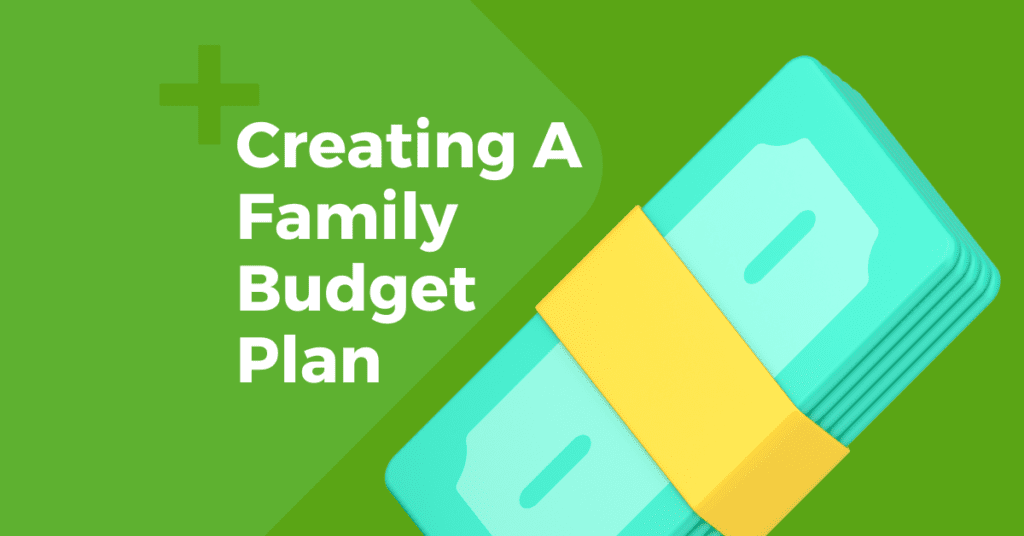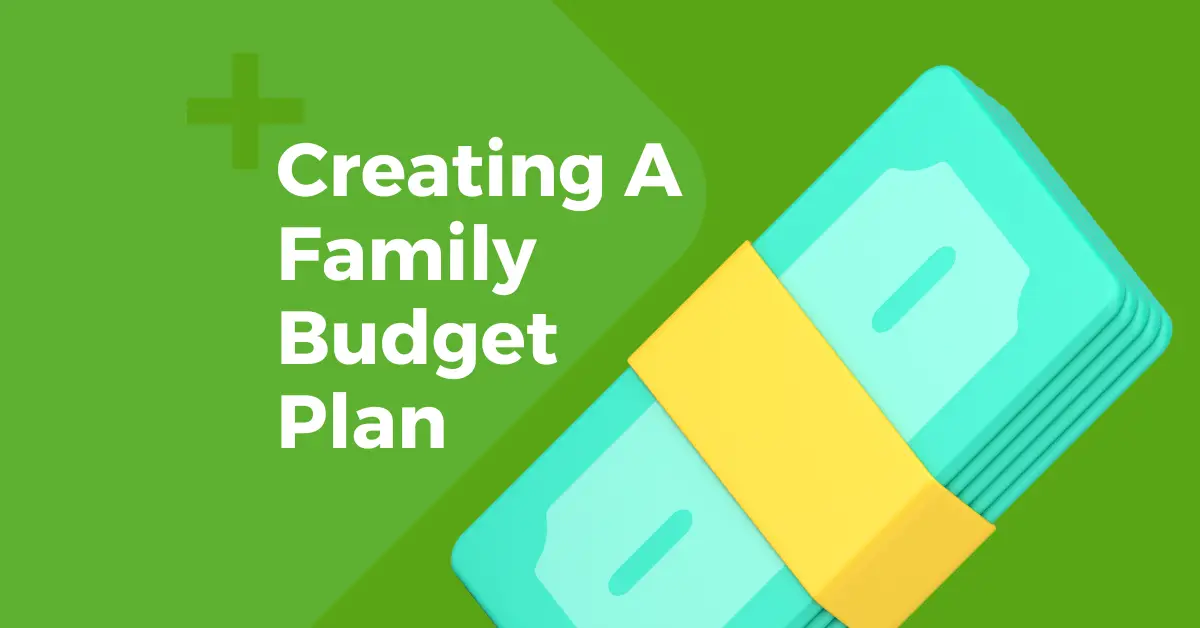
Budgeting is a crucial aspect of managing your finances, and having a well-planned budget can make a significant difference in achieving your financial goals. So, how can you create a budget plan that works for the whole family?
If you’re thinking of having another baby check out our calculator to see what it will cost.
Family Budget Plan
Creating a family budget plan is the foundation of a stable financial future. It’s essential to have a clear understanding of your family’s income and expenses to manage your money effectively. Start by listing all your income sources, such as salaries, freelance work, or rental income. Next, list all your expenses, including fixed expenses (like mortgage or rent, utilities, and insurance) and variable expenses (such as groceries, entertainment, and clothing). Then categorize these expenses into needs and wants. This categorization will help you prioritize your spending and identify areas where you can save. It’s also a great way to involve all family members in financial discussions and teach children the importance of distinguishing between necessities and luxuries.
Budgeting for Families
Budgeting for families involves setting financial goals, tracking expenses, and regularly reviewing the budget to make adjustments. It’s important to have open communication within the family about money matters. Involve all family members in the budgeting process, making it a collective effort that everyone is invested in. This not only helps build financial responsibility but also strengthens family bonds. By keeping track of your expenses and sticking to your budget, you’ll be better equipped to handle unexpected financial challenges and make progress toward your long-term financial goals.
Household Budget Plan
A household budget plan takes into account all the expenses related to running a home, from rent or mortgage payments to utilities and groceries. Having a clear picture of your household expenses enables you to make informed decisions about how to allocate your resources. To create an effective household budget plan, first identify and list all your recurring expenses. Then, allocate a portion of your income to each expense category based on its priority level. Don’t forget to include occasional or seasonal expenses, such as property taxes, home maintenance, and holiday spending. Regularly reviewing and updating your household budget plan will help you stay on track and avoid overspending in certain categories.
Join our groovy parents list. We’ll send you some cool stuff sometimes. But not too much either.
Family Financial Planning
Family financial planning goes beyond budgeting by considering long-term financial goals such as retirement, college education, and home ownership. Work together as a family to create a roadmap that outlines your financial priorities and the steps needed to achieve them. This may involve setting aside money for investments, creating an emergency fund, or paying off high-interest debt. By having a comprehensive family financial plan, you’ll be better prepared to handle the financial challenges that life throws your way, while also ensuring that your family’s future is secure and prosperous.
Personal Finance for Families
Personal finance for families includes managing debt, creating an emergency fund, and investing for the future. Financial education is crucial for parents and children alike, so make it a point to learn about and discuss topics like credit scores, loans, and investment strategies. Encourage your children to ask questions and participate in age-appropriate financial activities, such as saving their allowance or opening a savings account. Equipping yourself and your family with the right financial knowledge and tools will help you make informed decisions and instill healthy money habits in your children that will last a lifetime.

Budgeting for Parents
Budgeting for parents involves setting aside money for childcare, education, and extracurricular activities. As your family grows and evolves, so do your financial needs and priorities. Be prepared for unexpected expenses by maintaining an emergency fund and adjusting your budget accordingly to accommodate the changing needs of your growing family. For example, you may need to allocate more money to healthcare expenses when a new baby arrives or increase your education savings as your children approach college age. Remember that flexibility is key when budgeting for parents, so make sure to regularly review and update your budget to reflect your family’s current situation and goals.
Budget Planning Worksheet
A budget planning worksheet is a tool that can help you organize and visualize your income and expenses. It provides a structured format for you to record and track your spending, making it easier to identify patterns and make adjustments as needed. You can find free budget planning templates online, which can be customized to suit your family’s unique needs and circumstances. Alternatively, you can create your own worksheet using a spreadsheet software or even a simple pen and paper. Regardless of the format you choose, the key is to maintain consistency in using your budget planning worksheet to monitor your progress and make data-driven decisions about your finances.
If you’re starting to save for university check out our expert tips article
Budgeting Tools for Families
In today’s tech-savvy world, there are various budgeting tools available to help families stay on track with their financial goals. These tools range from mobile apps and websites to software programs and even traditional pen-and-paper methods. Some popular budgeting apps include Mint, You Need a Budget (YNAB), and EveryDollar, which offer features such as expense tracking, goal-setting, and financial reports. Explore different options and choose the budgeting tool that best suits your family’s needs and preferences. Remember that the most effective tool is the one that you’ll consistently use and engage with, so don’t be afraid to try out a few options before settling on the perfect fit for your family.
Budgeting Tips for Families
Budgeting can be challenging, especially for families juggling multiple financial responsibilities. Here are some budgeting tips to help you stay on track and achieve your financial goals:
- Set realistic goals: Start by setting achievable short-term and long-term financial goals for your family. Break down larger goals into smaller, manageable steps to make them more attainable.
- Automate savings: Set up automatic transfers from your checking account to your savings account, retirement fund, or college savings plan. This “out of sight, out of mind” approach can help you build your savings without even realizing it.
- Shop smarter: Be a savvy shopper by using coupons, price-comparison tools, and buying in bulk when it makes sense. Additionally, consider second-hand stores for items like clothing and furniture to save money without sacrificing quality.
- Celebrate small victories: Acknowledge and celebrate small milestones, like paying off a credit card or reaching a savings goal. This helps keep motivation high and reinforces the importance of sticking to your budget.
- Regularly review and adjust your budget: As your family’s needs and circumstances change, so should your budget. Review your budget at least once a quarter to ensure it remains accurate and relevant.

Setting a Family Budget
Setting a family budget starts with open communication and an honest assessment of your financial situation. Involve everyone in the process, from discussing financial goals and priorities to allocating resources to different expense categories. By working together, you can create a budget that is achievable, flexible, and aligned with your family’s values and priorities. Remember that a budget is a living document that requires regular review and adjustment to stay effective. Be prepared to make changes as your family’s needs evolve, and always keep the lines of communication open to ensure everyone remains invested in the process.
Conclusion
Creating a budget plan is an essential step towards financial security for families. With the right tools, communication, and commitment, you can establish a budget that helps you achieve your financial goals and fosters a sense of responsibility and collaboration within your family. Budget

